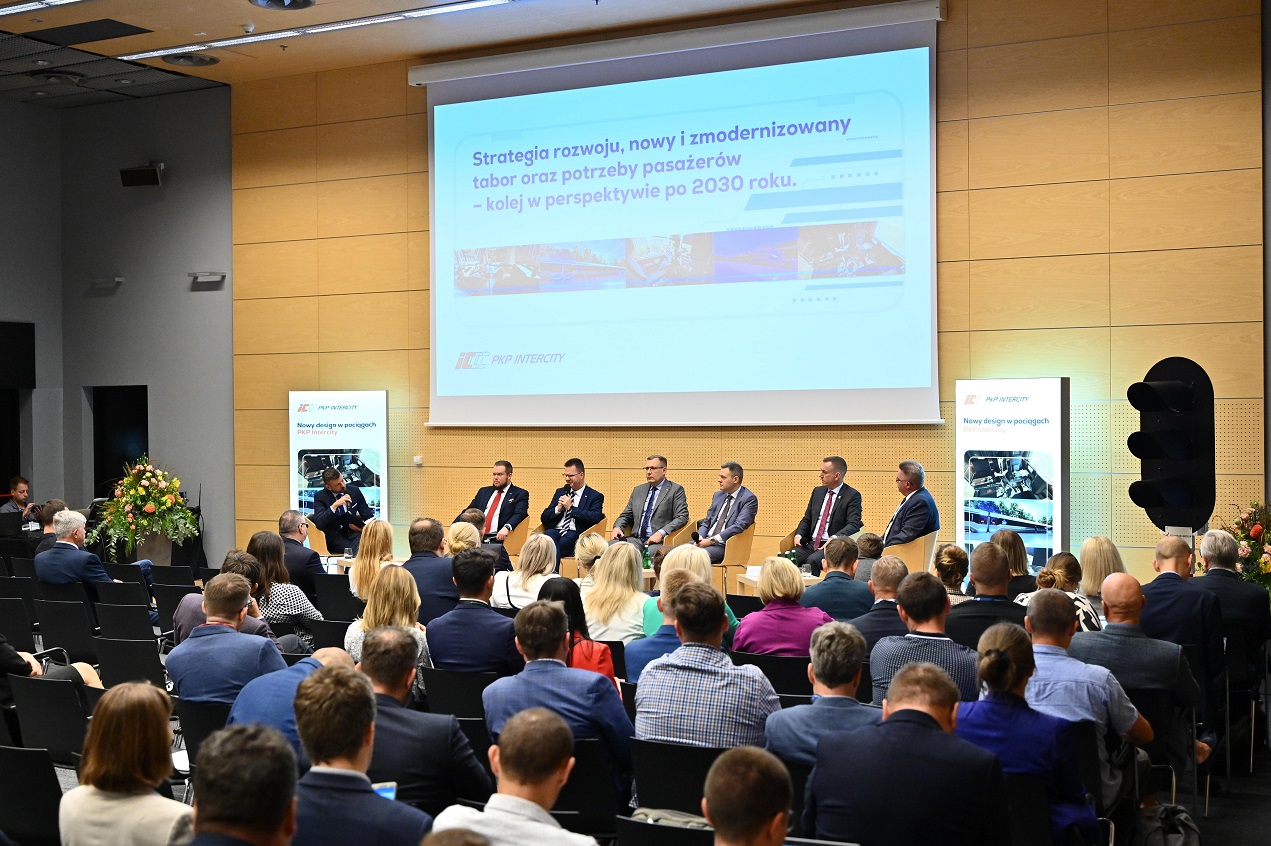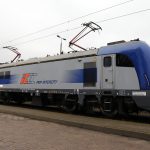 In 2030, PKP Intercity rail services will be used by 88 million passengers and in the following years it will even exceed this number, carried by 800 daily trains running at speeds of 160 – 250 km/h, significantly shortening travel times. In 2022, the company transported more than 59 million passengers, an increase of 10 million passengers compared to 2019.
In 2030, PKP Intercity rail services will be used by 88 million passengers and in the following years it will even exceed this number, carried by 800 daily trains running at speeds of 160 – 250 km/h, significantly shortening travel times. In 2022, the company transported more than 59 million passengers, an increase of 10 million passengers compared to 2019.
The plans will be encouraged by the investments the government and PKP Intercity are implementing for both rolling stock and infrastructure projects to deliver better services and connections, attracting record numbers of passengers. “Ten years ago, the Polish railways were in retreat, connections were being canceled – even those that were very popular. We changed it and we are reaching record numbers of passengers transported. We are constantly investing in modern locomotives and carriages that will meet the needs of modern passengers. The railway is developing to be a means of transport that not only allows you to get home comfortably, but also allows you to work or relax,” Maciej Małecki, the Secretary of State at the Ministry of State Assets, said during a conference organised by PKP Intercity at the international railway fair Trako, in Gdańsk.
Currently, the Polish rail operator is implementing the largest investment in its history to renew and expands its rolling stock. The company will spend PLN 27 billion (EUR 5.8 billion) of which PLN 24.5 billion (more than EUR 5 billion) will be used to purchase new carriages and locomotives, and the remaining will be used to modernise the existing fleet. By mid-2025, the long-distance rail operator will expand its locomotive fleet which will provide increased capacity and fast services on the modernised railway lines. “We have no doubt that the ambitious railway development strategy in Poland will be implemented. This process is already underway. We started from a really low level. Just a few years ago, passengers rarely chose the train, and today we are breaking transport records. The key to further development is successive work on the development of the offer,” Andrzej Bittel, the Secretary of State at the Ministry of Infrastructure said.
PKP Intercity rail services will write history in 2030 when the entire fleet will be new or modernised, doubling the number of daily trains. “Our investments on an unprecedented scale will revolutionise the Polish railways. We will travel more comfortably thanks to carriages with a new design. Travel at speeds of 160 – 250 km/h will become standard. We will enter a completely different league of European long-distance carriers in terms of comfort, speed and quality of services. After 2030, passengers will have much easier access to our services. Today, we sell up to 75% of tickets through remote channels, and in the future this percentage will be even higher,” the Vice-President of the Management Board of PKP Intercity said.
PKP Intercity will also modernise and equip the train stations and will construct new facilities to promote rail transport. The stations “have become cultural places of the city and facilitating access to stations will be an extremely important issue for the future of railways. Today, it is not only a place to wait for a train, but also a space where – especially in smaller towns – offices, shops and even libraries are located. We need to think about how to make it as easy as possible for passengers to use stations and to improve access to them,” Krzysztof Golubiewski, Member of the Management Board of PKP S.A. noted.
During the event in Gdańsk, PKP Intercity and Newag unveiled the first of the 15 Griffin multi-system locomotive, able to run with a speed of up to 200 km/h. The new locomotives are part of a contract signed in October 2021 for 10 new locomotives worth PLN 258.6 million (EUR 56 million). The contract included an option for an additional 5 units, which was exercised in June, bringing the entire value of the order to PLN 388 million (EUR 84 million).
The first multi-system Griffin locomotive will enter service in 2024 and will run at up to 200 km/h on the modernised lines including the ones linking the major citites. They will be also approved to operate in six countries. According to the contract signed with Newag, the manufacturer will have to obtain certification allowing locomotives to also operate on the rail networks of Austria, the Czech Republic, Germany, Hungary, Slovakia.
Once the approval is obtained, they will run on the lines connecting Berlin with Warsaw, Przemyśl and Gdynia, as well as from Vienna to Gdynia, via Warsaw and Katowice, expanding the capacity of PKP Intercity rail services.
Newag has also handed over PKP Intercity the last of the 30 EU160 Griffin series electric locomotives at the end of 2020, travelling at speeds of up to 160 km/h across the country’s network. The value of the contract covering the delivery of the 30 new locomotives and the provision of technical maintenance services amounted to PLN 551.4 million (EUR 119.5 million).
The two companies signed contracts totalling PLN 1.4 billion (EUR 303.6 million).
In addition to the contracts with Newag, the operator signed an agreement with Pesa Bydgoszcz to manufacture 16 new electric-diesel locomotives with a maximum speed of 160 km/h in electric traction and 120 km/h in diesel traction. The contract value is PLN 554.6 million (EUR 120 million).
In addition, the long-distance operator launched in August a tender for the purchase of 46 electric locomotives expected to be delivered by the end of 2025.
Share on:






